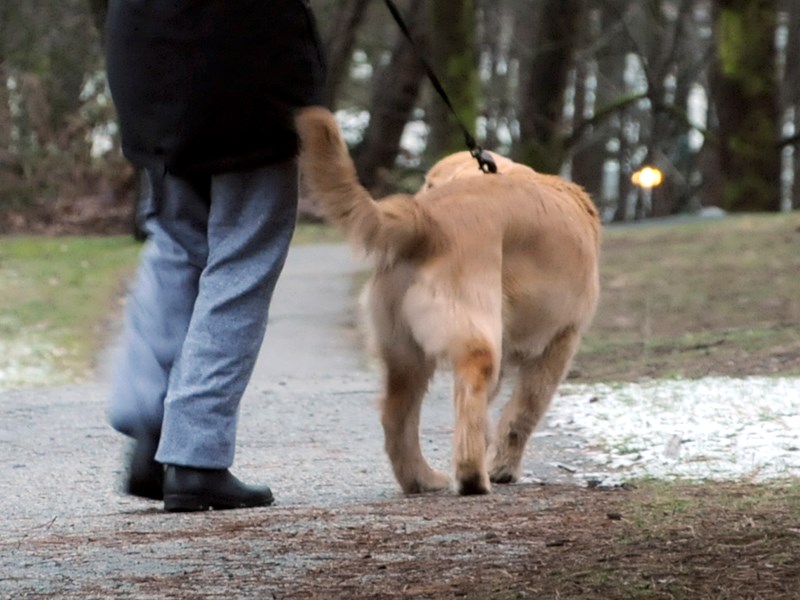Is it time for the District of West Vancouver to start collecting dog-doo DNA to sniff out pooch poopetrators?
At least one member of council says so. At the tail end of Monday night’s council meeting, Coun. Mary-Ann Booth suggested the district look into Fido feces forensics as a way to stop irresponsible dog owners from leaving their dog’s leavings behind.
“I, as a dog owner, would support this kind of initiative and it may go a long way to ameliorating some of the disharmony in the community around dog ownership,” she said.
Genetic dung detectives are becoming “quite reasonably priced,” Booth added, and it could turn into a revenue generator for the district. Booth said she was aware of a strata building that adopted dog-doo DNA analysis to enforce $2,000 fines for owners who aren’t observing the poop-and-scoop rule.
Under West Vancouver’s bylaw, failure to remove animal droppings results in a $150 ticket.
A number of stool study firms have popped up in recent years, marketing themselves to condo and townhouse complexes. Typically they charge a one-time fee for a dog to be swabbed for DNA and added to a registry. They then analyze the excrement evidence sent to them to match it with dogs on the registry and charge for the lab results.
Prompting the turd tagging idea was a letter to council from a Horseshoe Bay resident asking the district to reconsider its blanket ban on dogs on beaches, at least for the winter months when they are otherwise abandoned.
“It’s empty at West Bay, Kew Beach and the rocky side of Eagle Harbour. Larson is empty too, except for all the outlaw dog owners getting their Labradors some exercise, fetching sticks in the surf,” the resident wrote. “Bachelor Bay would be nice for many seniors in the area to let their pooches interact and run around. Sadly, we’re all too familiar with those rare, disgruntled sorts living on the street who have your bylaw department on speed dial and call when they look up from Judge Judy and see a four-legged creature touching beach sand.”
District staff, however, aren’t preparing to lift the rules around where dogs can lift their legs.
“The issue of dogs and where they can and cannot be is a challenge with all municipalities. ... In West Van, there are numerous places to walk dogs, both below the Upper Levels and above the Upper Levels,” said director of parks Anne Mooi, noting that keeping dogs off the beaches is also a matter of public health. “Currently, we wouldn’t really recommend opening up our beaches during the off-season at this time. We would need to study the environmental impacts and also obviously do a very extensive consultation with the community.”
The last time staff looked at it in detail, they found a split opinion among West Vancouver residents whether dogs should be kept on a short leash, figuratively, or no leash at all.
Staff will review the district’s parks master plan, which could include a review of rules around canines, in 2018, Mooi added.



